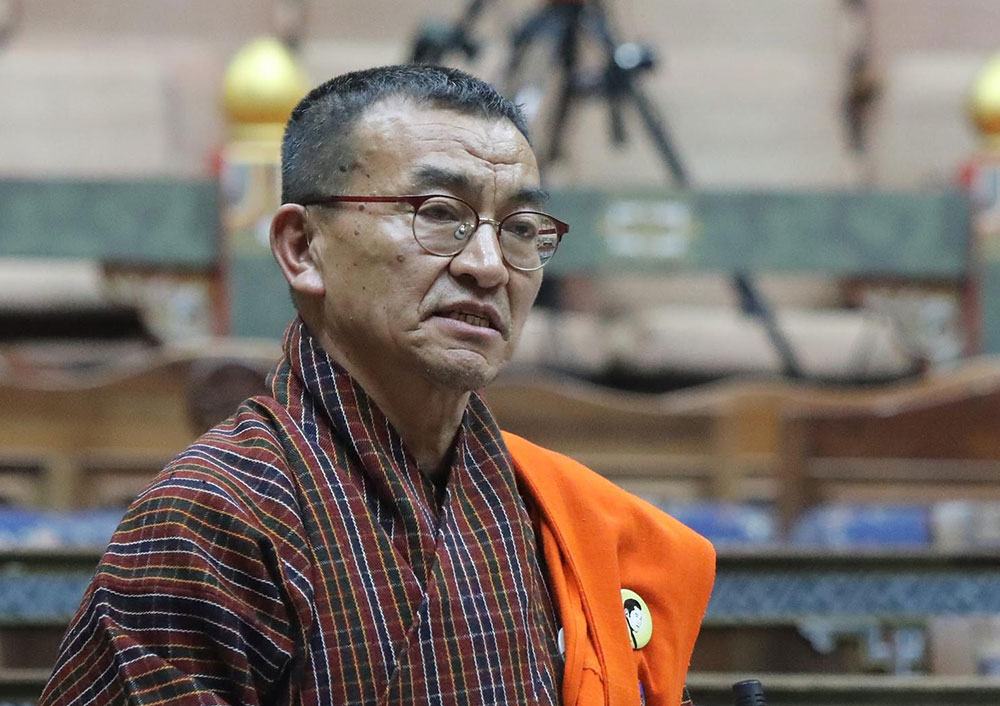Thukten Zangpo
The National Assembly (NA) supported the Cattle Tax Exemption Bill 2024 after the finance minister proposed to exempt cattle tax to encourage livestock rearing and boost rural economies.
Introducing the Bill, Finance Minister Lekey Dorji said that the existing cattle tax, based on the Revised Taxation Policy of 1992, levies a tax ranging from Nu 1 to Nu 10 per head, depending on the number of cattle owned.
According to this taxation policy, Nu 1 per cattle was levied for up to 10 cattle, Nu 5 for 11 and above, and Nu 1 per sheep.
The tax applies to various types of livestock, including mithun, cow, yak, buffalo, horse, donkey, goat, and sheep.
The tax waiver had originally been proposed during the drafting of the Property Tax Bill 2022, but was not included in the final version as cattle tax does not pertain to immovable property.
The Finance Minister said that some local government officials had raised questions about whether to continue collecting the cattle tax, especially in light of the new Property Tax Act 2022.
Lyonpo said exempting the cattle tax could have positive effects for farmers, encouraging greater investment in livestock rearing, and potentially fostering broader economic and social benefits within rural communities.
He also pointed out the disparity in cattle tax collection across the country, stating that the removal of this tax would likely have a minimal impact on local government finances since the tax generated only small amounts.
According to figures from the finance ministry, cattle tax collections were Nu 0.31 million in 2015 and increased slightly to Nu 0.47 million in 2018.
The Bill has now been forwarded to the NA’s Economic and Finance Committee for review, with findings to be deliberated on November 25.
Meanwhile, the NA withdrew the Goods and Services Tax (amendment) Bill yesterday after the finance minister proposed the House to withdraw the Bill with all members supporting the motion.
Finance Minister Lekey Dorji said that the Bill is not currently suitable for introduction or adoption as the National Assembly during the summer session in 2022, adopted the Goods and Services (amendment) Bill of Bhutan 2022 to be implemented when the tax system (Bhutan Integrated Tax System) is ready.
In addition, the GST Act 2020 will come into force from the day the Parliament approves for enforcement when the GST system is ready.
The GST Act , passed in 2020, facilitates the implementation of a consumption-based single seven percent tax system that will subsume the sales tax and modify the excise system. The GST could replace the current sales tax and excise duty, which is expected to eliminate cascading of taxes on businesses, promote ease of doing businesses, and expand the tax base.
Lyonpo also said that the GST Act 2020 could not be implemented even after four years. He added that the main cause of delay was because of the government’s focus on combating Covid-19 padenmic in 2020 and the global economy, including Bhutan’s economy, was not faring well.
The Department of Revenue and Customs under the finance ministry has outsourced the development of Bhutan Integrated Tax System (BITS) to New Zealand’s leading tech business, Data Torque Limited in August this year.
The BITS is expected to be fully operational by 2029, and funded by the government, will cost over Nu 1 billion.
Lamgong-Wangchang MP Sonam Tashi raised concerns over the GST implementation, pointing out that while tax is a crucial source of revenue, Bhutan’s economy is still recovering from the pandemic, and the private sector is struggling. He warned that implementing GST under these conditions could have negative repercussions for businesses and the economy.


